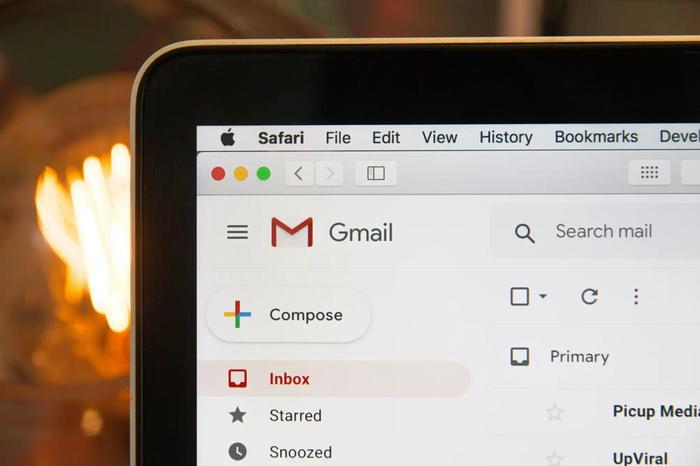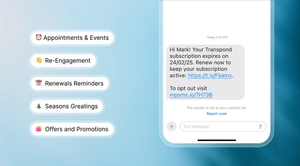It’s undeniable that acquiring new customers costs more than retaining existing ones. Prioritizing customer retention is essential for boosting revenue and achieving sustainable growth. Building an email list is a key strategy to achieve these objectives. Keeping customer loyalty can be challenging but attainable through providing continuous value. Email marketing is one of the most effective methods to engage your audience when done properly.
Two critical factors for an effective email list-building strategy are:
- Sufficient website traffic
- Effective sign-up forms on your website
- Ensuring these two factors are central to your email list, will help form a successful strategy.
What is an email list?
An email list consists of email addresses collected from customers, prospects, or visitors by businesses or individuals. These addresses can send personalized marketing emails, messages, newsletters, promotions, or updates directly to recipients’ inboxes. Email lists enable marketers to:
- Foster and sustain relationships with their audience
- Boost customer engagement
- Improve sales or conversions
Email lists can be segmented by demographics or purchasing behavior. For example, using tailored content to enhance the effectiveness of marketing campaigns.
The main aim of building an email list is to expand your pool of potential leads, gradually converting them into loyal customers.

Why you should build an email list
Building an email list is crucial, especially for new ecommerce businesses, as it offers numerous benefits. For many ecommerce stores, the email list is their most treasured asset. Here are the advantages of creating your own email list:
Cost-effectiveness
While digital advertising costs heighten as their efficacy declines, email communication remains more economical.
Personalization
Unlike ads, emails can be personalized and automated based on customer actions, providing a more targeted approach.
Precise audience targeting
As targeting on social media platforms like Meta becomes less effective, email allows for more accurate segmentation based on specific criteria such as demographics or behavior.
Ownership and control
Your email list is a valuable asset you own outright, independent of any other platform.
Relationship building
Unlike the broad reach strategy of digital ads, emails allow for personalized interactions that nurture customer relationships along their journeys.
What defines a quality email list?
Quality email lists support the best email marketing campaigns. Creating emails with excellent design, compelling copy, and intriguing offers is only useful if your list is properly segmented and targeted.
Here are the three pillars of crafting an exceptional email list that drives sales:
- Quality: Ensure you're collecting authentic, comprehensive information from individuals. Avoid purchasing email lists at all costs. Email addresses from bots, spam accounts, or inactive users are worthless as they do not engage or convert into sales.
- Relevance: Targeting is crucial. It's challenging enough to convert prospects who are interested in what you offer; including individuals who have no interest in your products or services only increases your churn rate. Focus on individuals who demonstrate a genuine interest in your offerings.
- Quantity: After establishing a foundation of quality and relevance, shift your focus to expanding your list. Grow your reach thoughtfully to encompass new or broader audiences without compromising the integrity of your existing engagements.
Essentials of a good email list
Before building an email list, you should understand some best practices. Here are, the key attributes your email list-building tactics should include.
Permission-based
Ensure your email list comprises individuals who have explicitly consented to receive your emails. Purchasing email lists is a no-go; it's unethical and can harm your brand's reputation.
Accurate and current
Maintain a list with valid, up-to-date email addresses. Regularly sort through your contact list by removing inactive or bounced emails to keep engagement high.
Relevant to your audience
Your email subscribers should have a genuine interest in your offerings. Ideally, being a part of your target demographic will make them more likely to interact with your messages.
Contains engaged subscribers
Aim for a list of active users who frequently open, click, and interact with your emails. These subscribers are more likely to convert and share your content.
Segmentable
A well-segmented customer email list allows for targeted and personalized communication. You can undertake customer segmentation for your list based on thing such as demographics, buying behavior, or engagement level.
Continuously growing
Focus on steadily growing your list. Employ strategies like offering lead magnets, running social media promotions, or partnering with other brands to attract new subscribers.
Unsubscribe options available
Making it easy for people to unsubscribe from your list might seem counterproductive, but it respects user preferences, helps with their experience with your brand, and in many countries, an essential data privacy law. By focusing on building a relevant and engaged email list and continuously refining your strategies, you can significantly boost the effectiveness of your email marketing efforts over time.

How to create an email list
Now we’ve gone through the essential best practices, it’s now time to go through how to do the do. Below we’ve listed various steps to set up your own email list.
Introduce timed pop-up CTAs
Instead of generic pop-ups, consider implementing timed pop-up ads that activate under specific conditions. These conditions could include exit intent or after a user has spent a certain amount of time on a page. This strategy ensures that the pop-up is relevant to the content the user is engaging with or appears when a user shows signs of leaving the site. Well-timed pop-ups can significantly increase user engagement by offering targeted value, such as a relevant free ebook or a discount code, boosting the user experience and increasing the likelihood of conversions.
Personalize your CTAs
Personalization can dramatically increase the effectiveness of your calls to action. By tailoring CTAs based on the page’s content—such as a specific blog post or landing page—you directly address the user's interests.
This level of customization makes the call to action more relevant and appealing, leading to higher conversion rates and more engaged subscribers.
Inject humor into opt-out options
Making your opt in forms and opt-out options witty can pause users before they decline your offer. A playful message beneath a CTA, like "No thanks, I already know everything about email marketing," can make users think twice, adding a human touch and reducing the monotony of standard "yes" or "no" options.
This strategy can decrease bounce rates on pop-ups and increase the likelihood of a user giving your email list a chance.
Implement a scroll box
A scroll box that appears at a strategic point in the user's journey through your page can capture interest without being intrusive.
Use A/B testing to find the most effective placement—whether it's after reading 50% of a blog post or right before they leave the page.
The key is to catch visitors when they’re most likely to be engaged but not interrupt their reading, making the signup form top-up option feel like a natural next step rather than a disruption.
Highlight the value in your CTAs
Shift the focus of your CTAs from action-oriented commands like "sign up" to value-driven invitations such as "Get your free guide" or "Access exclusive tips."
By emphasizing what users will gain rather than what they must do, you align more closely with their motivations and interests. This makes the proposition of joining the sign up form for your email list more attractive and beneficial.
Offer incentives
People are more likely to sign up for your email list if they feel they’re getting something immediately beneficial in return.
Incentives like a one-time discount, free shipping, or access to exclusive content can make the decision to provide their email address feel more advantageous.
Make sure these offers are compelling and relevant to your audience's needs and preferences, which will help convert casual website visitors into loyal followers.
Leverage a referral program
Encourage your existing subscribers to become brand advocates by incentivizing them to share your newsletter with their networks. Offering rewards for each successful referral integrates seamlessly with the natural desire to share valuable content with friends and colleagues. This approach can exponentially increase your reach and subscriber base, leveraging the trust and personal connections of your existing audience.
Opt-In during checkout
Incorporating a subscription opt-in option during the checkout process is an effective way to grow your email list with minimal friction. Customers are already engaged in a transaction with you, so adding a simple checkbox for them to receive updates and offers is a logical step that can yield high opt-in rates without being perceived as intrusive.
Gamify sign-ups
Introduce elements of gamification such as spinning wheels or quiz-based interactions to make the whole email signup form take-up process fun and engaging. This approach not only entertains users but also provides them with a unique and memorable experience that can lead to higher engagement rates. Offering rewards based on game outcomes can further incentivize users to join your list.
Promote on social media and email signatures
Utilize every touchpoint with your audience to promote your email list, including your social media accounts and platforms and your personal or professional email signature.
This ensures that all your networks are aware of your email offerings and provides multiple avenues for sign-up. Highlighting your newsletter in these spaces can also attract subscribers who are already interested in your brand, making them more likely to engage with your content.
Create more landing pages
Each additional landing page provides a unique oppotunity to cater to the diverse needs of your audience. By creating multiple targeted pages, you can address specific customer concerns and interests, increasing the relevance and appeal of your content.
More landing pages also mean more opportunities to test and refine your approach, leading to better overall performance in subscriber acquisition.
These expanded strategies will help you build an email list that grows in size and is comprised of engaged and interested users who are more likely to become long-term subscribers and advocates for your brand.
Select a robust email marketing platform
Initially, simple tools like Gmail or Outlook might handle basic email tasks and a small number of contacts. However, as your list expands and the need for automated campaigns grows, a dedicated email marketing tool like Transpond becomes essential.
Opt for a platform that scales with your growth and offers comprehensive features for crafting engaging emails. Also, consider platforms that include additional features such as landing page builders, other marketing tools, automation, and A/B testing capabilities, especially if you're aiming to grow your list organically.
Leverage personal networks for email list growth
A straightforward approach to expanding your email list is by tapping into your personal contacts. Chances are, several individuals within your personal or professional network might be interested in your offerings.
Initiate contact by sending a personalized email detailing the benefits of joining your email list and how it could add value to them. Encourage people and these contacts to spread the word among their networks to further extend your reach and collect email addresses.
Similarly, if you have an established user base for your product but lack a dedicated email list for marketing purposes, consider reaching out directly. Inform your users about the opportunity to receive updates on new content and developments by subscribing to your email list.

Advanced tactics
Once your email list foundation is set and subscribers begin to join, you can explore advanced tactics to propel your list's growth. Here are six innovative strategies to enhance your email list building efforts.
Integrate chatbots to engage visitors
Chatbots have become a game-changer in automating interactions with site visitors, saving time while offering personalized engagement. This enables automated messaging that can convert conversations into subscriptions by providing timely offers or support.
Boost signups through targeted ad campaigns
Utilize the focused environment of landing pages to drive email signups from ad campaigns. With precise tools in Google AdWords and Facebook Ads Manager, tailor your campaigns to target specific demographics, ensuring your offers reach the appropriate audience and maximize sign-up potential.
Conduct surveys to engage and inform your strategy
Surveys are invaluable for gathering insights directly from your audience while also capturing their emails. Tools like Google Forms facilitate this process, allowing you to integrate questions that align with your marketing goals and offer incentives for participation.
Offer value-driven content to attract subscribers
Beyond your products, provide content that addresses your customers' needs, such as how-to guides, case studies, or expert tips. For instance, offer a free delivery or a downloadable content piece as a lead magnet that provides immediate value in exchange for email signups, establishing trust and encouraging further engagement.
Organize social media contests and giveaways
Leverage the viral nature of social media contests to rapidly expand your email list. Collaborate with complementary brands or influencers who share your target audience to increase the reach and appeal of your giveaways. Consider using a dedicated landing page or pages for these events to streamline participant experience and improve tracking.
Each of these strategies not only helps grow your email list but also enhances engagement by offering your audience tailored, interactive experiences that resonate with their needs and preferences.
Wrapping up: building an email list
In summary, building an email list is essential for nurturing both potential customers and existing customers. Clearly, it’s a cornerstone of any effective digital marketing strategy.
It enables online businesses to run personalized email campaigns directly targeting the unique needs and preferences of their audience. This strategic approach not only boosts customer satisfaction but also drives business growth.
Incorporating robust email list building techniques into your marketing efforts, supported by a reliable platform like Capsule’s CRM, sets the stage for remarkable results.
Sign up for a 14 day free trial to create world class email campaigns with automations and advanced sequences.




